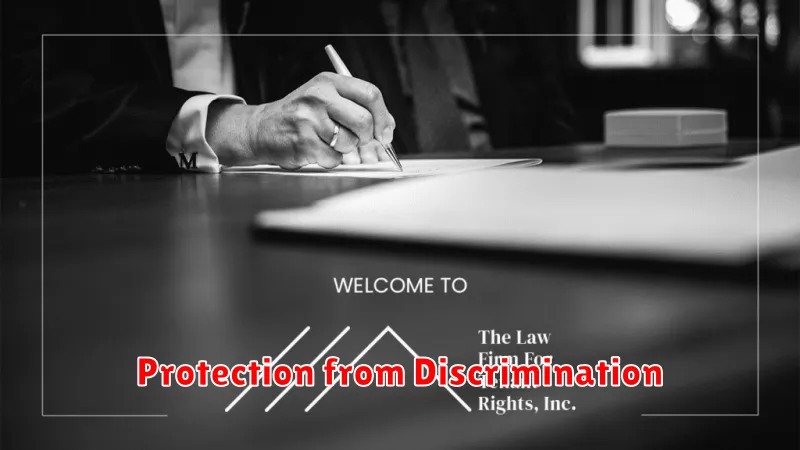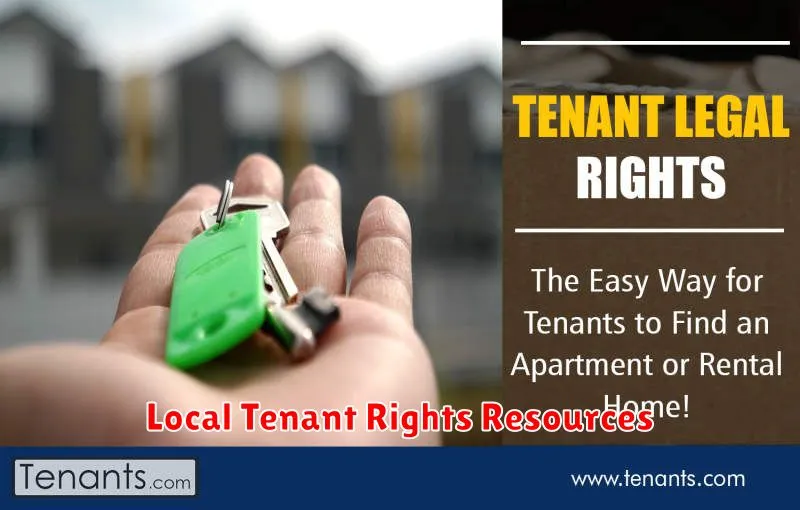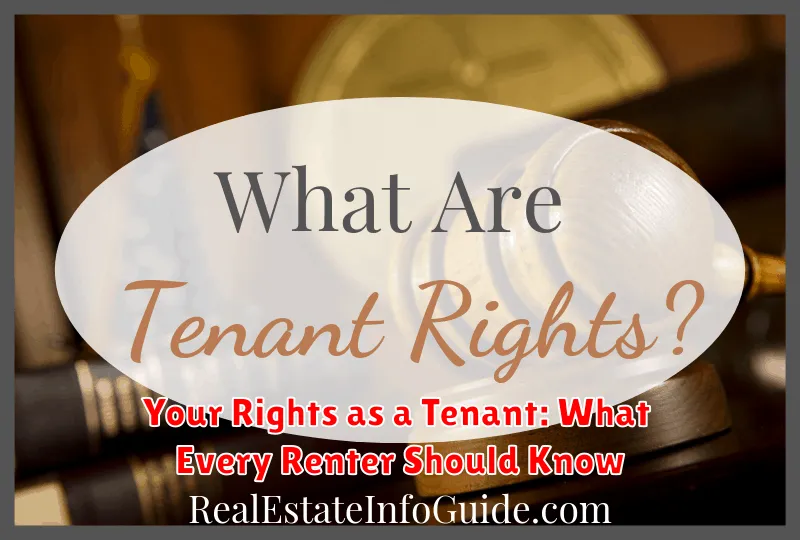Knowing your rights as a tenant is crucial for a positive and legally sound renting experience. Whether you’re a seasoned renter or just starting out, understanding your legal standing empowers you to navigate the complexities of landlord-tenant relationships confidently. This comprehensive guide will explore the essential tenant rights every renter should be aware of, covering topics such as lease agreements, security deposits, maintenance responsibilities, and eviction procedures. By familiarizing yourself with these renter’s rights, you can protect yourself from unfair practices, ensure a safe and habitable living environment, and foster a healthy landlord-tenant relationship.
From understanding your rights regarding lease agreements and security deposit protections to knowing your rights regarding maintenance and eviction, this article serves as a valuable resource for all tenants. We’ll delve into the specific laws protecting tenants, providing clear and concise explanations to help you understand your legal entitlements. Whether you are experiencing issues with your current landlord or simply seeking to be a more informed renter, this knowledge will prove invaluable. Empower yourself with the information you need to confidently assert your rights as a tenant and enjoy a secure and positive renting experience.
Right to a Habitable Home
As a tenant, you have a fundamental right to a habitable dwelling. This legal concept, often referred to as the “implied warranty of habitability,” mandates that landlords maintain a safe and livable environment for their tenants. This typically includes functioning plumbing, heating, electrical systems, and a structure free from significant defects or health hazards.
Specific requirements for habitability can vary depending on local ordinances. However, essential aspects often include working smoke detectors, adequate ventilation, proper sanitation, and freedom from pest infestations. Landlords are generally obligated to repair these issues within a reasonable timeframe upon receiving notice from the tenant.
Right to Privacy
As a tenant, you have a right to quiet enjoyment of your rented property. This means your landlord cannot enter your home without proper notice or a legally justifiable reason.
Landlords typically need to provide 24-48 hours’ notice before entering, except in emergencies. Acceptable reasons for entry can include necessary repairs, routine inspections, or showing the unit to prospective tenants or buyers.
If your landlord repeatedly violates your privacy, document each instance. Keep a record of dates, times, and the reasons given for entry. This documentation can be helpful if you need to take further action.
Right to Timely Repairs
As a tenant, you have the right to a habitable living space. This includes the landlord’s responsibility to make necessary repairs in a timely manner. Landlords are legally obligated to address issues that affect your health and safety, such as plumbing problems, heating malfunctions, or structural damage.
While reasonable wear and tear is expected, you should promptly report any necessary repairs to your landlord. Document your communication, including dates and the nature of the problem. If your landlord fails to respond or make repairs within a reasonable timeframe (which varies by jurisdiction and the severity of the issue), you may have legal recourse. Check your local tenant laws regarding specific timeframes and potential remedies.
Protection from Discrimination

Federal and often state laws protect tenants from discrimination. Landlords cannot refuse to rent to you, treat you unfairly, or terminate your tenancy based on certain protected characteristics.
These protected characteristics typically include race, color, national origin, religion, sex, familial status (including children under the age of 18 living with you), and disability. Some state and local laws may offer additional protections.
If you believe you have been discriminated against, you may have legal recourse. Document all instances of potential discrimination and consult with a fair housing agency or an attorney.
Right to a Written Lease
In many jurisdictions, tenants have the right to a written lease agreement. A written lease clearly outlines the terms and conditions of the tenancy, including the rent amount, lease duration, and responsibilities of both the landlord and tenant. This written document serves as legal protection for both parties.
A written lease provides clarity and helps avoid disputes. It’s much easier to refer to a written agreement than to rely on verbal agreements, which can be easily misinterpreted or forgotten. Having a written lease is crucial for protecting your rights as a tenant.
Even if your jurisdiction doesn’t mandate a written lease for all tenancies, it is strongly recommended that you request one. This offers you greater security and peace of mind.
Right to Receive Deposit Refunds
As a tenant, you have a right to receive your security deposit back after your lease ends, provided you’ve met the terms of your lease agreement. Landlords can only withhold portions of your deposit to cover unpaid rent or damages beyond normal wear and tear.
Your landlord is generally required to return your deposit within a specified timeframe, which varies by state. They must also provide an itemized list of deductions, if any. If you disagree with the deductions, you have the right to dispute them.
Notice Requirements for Entry
Landlords generally must provide reasonable notice before entering your rental unit. While specific requirements vary by state and local laws, many jurisdictions mandate at least 24 or 48 hours’ notice.
Valid reasons for entry typically include necessary repairs, routine inspections, or showing the unit to prospective tenants or buyers. However, entry for non-emergency reasons must be at a reasonable time.
Emergency situations, such as fire or flood, generally permit entry without notice. It is crucial to review your lease agreement and local laws to understand your specific rights regarding landlord entry.
Right to Fair Eviction Process
As a tenant, you have the right to a fair and legal eviction process. Landlords cannot simply remove you from the property without following specific procedures dictated by law. These procedures vary by jurisdiction, but generally involve proper notice, a statement of valid reasons for eviction, and the opportunity to challenge the eviction in court.
Common legal grounds for eviction include non-payment of rent, violation of lease terms, and damage to the property. However, landlords cannot evict tenants for discriminatory reasons or as retaliation for asserting their legal rights.
If you face eviction, it’s crucial to understand your rights and seek legal counsel immediately. Familiarize yourself with your local tenant-landlord laws to ensure your rights are protected throughout the eviction process.
Local Tenant Rights Resources

Knowing your rights as a tenant is crucial, but understanding how those rights apply locally is equally important. Local ordinances often provide additional protections beyond federal or state laws. Locating and utilizing these resources is essential for effectively advocating for yourself.
Start by researching your city or county’s housing department. They often have detailed information on local tenant rights, regulations, and resources available to renters. Additionally, seek out tenant unions or legal aid organizations in your area. These groups can offer valuable assistance, including free legal advice and support navigating landlord-tenant disputes.
How to Resolve Disputes
Disagreements between landlords and tenants are unfortunately common. Communication is key to resolving most issues. Start by clearly and calmly explaining the problem to your landlord, preferably in writing and keeping a copy for your records.
If direct communication fails, consider mediation. A neutral third party can help facilitate a conversation and find a mutually agreeable solution. Many localities offer free or low-cost mediation services.
If mediation doesn’t work, your next step might be legal action. Familiarize yourself with your local tenant laws and consider consulting with a lawyer or tenant rights organization to understand your options, which may include filing a complaint with a housing authority or pursuing a case in small claims court.

